Editor Of Khamenei’s Daily Threatens EU Forces In Region

As Tehran intensified threats against Europe over prospects of designating the IRGC as a terrorist group, hardliner daily Kayhan threatened military attack on EU forces.

As Tehran intensified threats against Europe over prospects of designating the IRGC as a terrorist group, hardliner daily Kayhan threatened military attack on EU forces.
The firebrand Hossein Shariatmadari, the editor of the flagship hardliner newspaper -- which is funded by the Supreme Leader – condemned the European Parliament’s resolution, which was passed overwhelmingly on January 19, calling on the EU to list the IRGC as a terrorist organization.
“The European Union does not know that this action will backfire and make the armed forces of the Islamic Republic’s attacks on the military of the EU member states legal and legitimate,” he said.
Shariatmadari, who often speaks for Ali Khamenei, added that if the EU council acts on the resolution by the parliament and designates the Guards, the Islamic Republic will retaliate and designate "the forces of the European Union member states as terrorists".
Known for his repeated calls to close the Strait of Hormuz in the Persian Gulf in response to any punitive measure against Iran by the international community, Shariatmadari said "In this case, we will deal with them as we deal with other terrorists."
He emphasized that “EU-affiliated forces have been present in the region and are available to us."
The regime’s saber-rattling had started even before the vote but has intensified since the Thursday session.
Malek Shariati, the spokesman of the Parliament's Energy Committee, also threatened that if the IRGC is officially listed as a terrorist group in Europe, "their forces will be terrorists in our opinion, and the entire European commercial transit route in the region will no longer be safe."
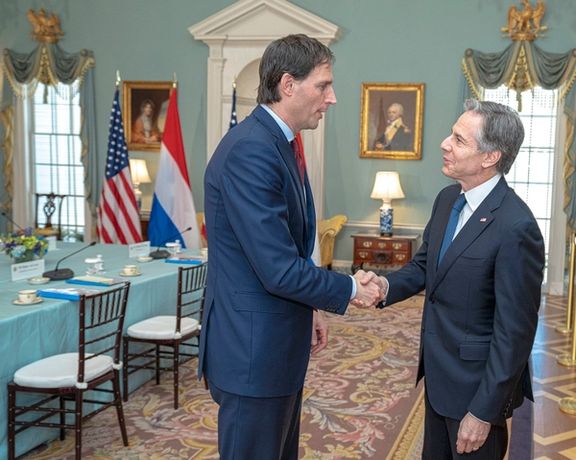
As the European Council is set to decide about European Parliament’s call to list Iran’s Revolutionary Guard as a terror group, the Netherlands has already expressed its support.
Dutch Foreign Minister Wopke Hoekstra said in a tweet on Thursday that “The Netherlands is strongly in favour of listing the IRGC as an entity, a step that requires the joint commitment of EU member states.”
He added that he held talks with High Representative of the EU for Foreign Affairs and Security Policy Josep Borrell about Russia and Iran.
“We also addressed the grave human rights violations in Iran,” he said, noting that “We need to continue to sanction those responsible.”
Hoekstra also said he will also hold talks with German Foreign Minister Annalena Baerbock to address this issue at the upcoming EU Foreign Affairs Council.
The Dutch foreign minister also held talks with US Special Envoy for Iran Robert Malley. “Productive meeting with Foreign Minister Hoekstra. We discussed our common steps to confront Iran's human rights abuses and counter its provision of weapons to Russia for use in its brutal war of aggression against Ukraine,” Malley said.
Although the European Parliament overwhelmingly passed the non-binding resolution on January 19, it cannot decide to designate the IRGC, which is an issue within the purview of the EU Council, comprised of ministers of each EU country. If the resolution garners enough support, it is then upon the national governments of the EU member states to make the final decision. The listing of the IRGC must have a unanimous vote by all 27 EU members in the EU Council.
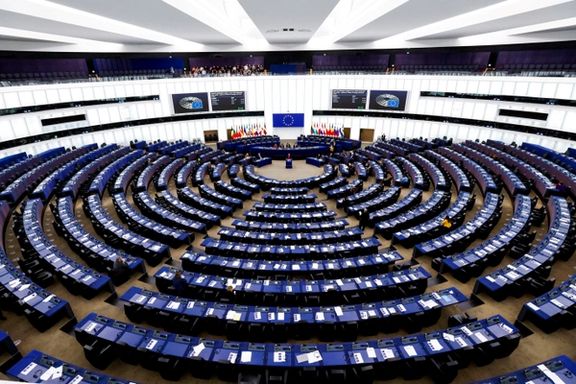
While many Iranians welcomed the European Parliament’s resolution that calls on EU to list the Revolutionary Guard as a terrorist group, regime officials have threatened to respond.
After the European Parliament overwhelmingly passed the resolution Thursday that may eventually lead to the designation of the IRGC, people on social media started to congratulate each other, describing it as yet another victory for their revolt against the clerical regime.
Since the beginning of the current wave of antigovernment protests ignited by a Iranian young woman – Mahsa Amini – the Iran’s government is becoming more isolated in the international community. So far, the Islamic Republic was voted out from the United Nations Commission on the Status of Women (CSW) for policies contrary to the rights of women and girls in December. Another step was by the Geneva-based UN Human Rights Council’s decision on November 24 to launch an independent investigation into the regime’s deadly repression of protests that has killed around 500 civilians, including about 60 children. Several rounds of sanctions by the European Union, the US, Canada and others also targeted officials and entities involved in the crackdown.
According to social media videos, people in some Kurdish cities, including Saqqez – the hometown of Amini -- and Mahabad, came to the streets and rejoiced with fireworks following the approval of the resolution.
Videos sent to Iran International from different cities such as Qom – home to Iran’s biggest seminary -- and the southern city of Bandar Abbas show people distributing candies to celebrate the decision. In one video, someone said that they are watching the European Parliament’s session live on Iran International TV, adding that it is more exciting than the World Cup matches.
Meanwhile, Islamic Republic’s officials, who had started threatening Europe even before the vote, have intensified their rhetoric against European countries over the decision.
Foreign Ministry spokesman Nasser Kanaani said the reason for the designation of IRGC as a terrorist organization is that Europe is infuriated over the IRGC’s leading role in the fight against terrorism. “The reason behind the anger of the ‘global club of terrorists’ is crystal clear. The IRGC is the world’s largest counter-terrorism institution,” he wrote in a tweet on Friday.”
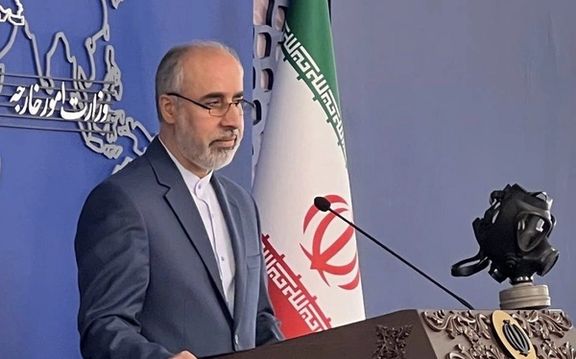
In a statement on Friday, the Army condemned the move, claiming that it exposed the enemies’ grudge against the Islamic establishment in Iran. “The measure of the European Parliament, which claims to be fighting terrorism, against an anti-terrorist institution is out of their desperation and failure in supporting recent riots in Iran,” read the statement.
Hardliner Iranian lawmaker Mohammad Esmail Kowsari, himself a former IRGC commander, said on Friday, "One should ask where the IRGC has committed terrorist acts. They conspired to overthrow the Islamic Republic and the IRGC foiled it." Vowing that the parliament will announce its retaliatory measures on Sunday, he asked, “What part of the IRGC is a terrorist group?”
Criticizing the motion, Speaker of Iran’s parliament, Mohammad Bagher Ghalibaf, said that “If the European Union makes such a decision and lists the Guards as a terrorist organization, it means that the European Union acts as a supporter of terrorism, because the IRGC is the biggest and most successful anti-terrorist entity.”
The whole argument of the Islamic Republic in defense of the IRGC – which has armed proxies in many countries across the region – is its limited role in the battle against the ISIS. But in fact, IRGC was building its own Shiite militant proxy network and to an extent fought against the Sunni extremist group.
The European Parliament cannot decide to designate the IRGC because the terrorists list is not a list decided by the Parliament itself but by the EU Council, comprised of ministers of each EU country. If the resolution garners enough support, it is then upon the national governments of the EU member states to make the final decision. The listing of the IRGC must have a unanimous vote by all 27 EU members in the EU Council.
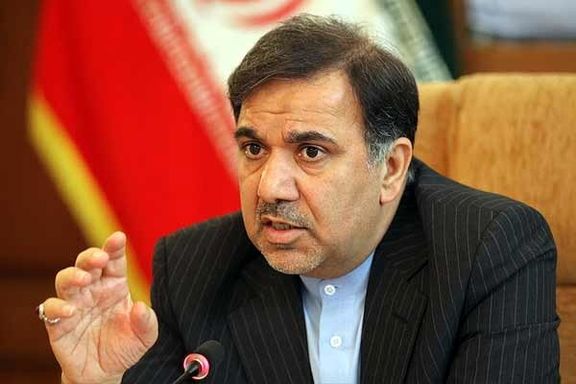
Some Iranian ‘moderate conservative’ politicians suggest that Iran should act to compensate for the damage and isolation caused by a problematic foreign policy.
Correcting Iran's policy regarding Russia's war in Ukraine, by adopting a neutral stance, is a recurrent suggestion.
As the European parliament overwhelmingly voted to support the designation of Iran’s Revolutionary Guard, the IRGC, as a terrorist organization, University lecturer and former housing minister Abbas Akhoundi suggested that Tehran should enter transparent and direct talks with the EU to shed light on its positions about the war in Ukraine.
In fact, Tehran has tried several times to whitewash its support for Russia in the Ukraine war and the deployment of its drones to Russia, but no one even in Iran has accepted the regime’s claims of neutrality, as evidence about the destructive role of Iranian drones in attacks on civilian targets is damning.
Meanwhile, Akhoundi said that Russia should not drag Iran into a war it is not a part of. He further maintained that Iran's involvement in the war in Ukraine is the main cause of rising tensions between Tehran and the European Union. The resulting adverse impact on the suspended nuclear talks cannot be compensated, Akhoundi said, adding that resolving the controversy about Iran's role in the Ukraine war is even more urgent than trying to revive the 2015 nuclear deal known as the JCPOA.
He added that leaving behind this crisis needs a level of intelligence which is beyond the Iranian government's capacity. He said this comes while some members of the European Parliaments have questioned the legitimacy of the Islamic Republic. This, Akhoundi said, will prepare the world's public opinion for any action against Iran.
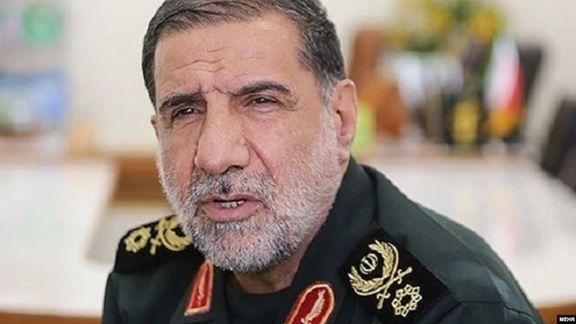
He argued that aggressive responses by some Iranian officials plays into the hands of “warmongers” in Europe. Akhoundi was possibly referring to IRGC general and Iranian lawmaker Esmail Kowsari's threats against Europe in case the EU lists the IRGC as a terrorist organization.
Akhoundi said that as a result of a failing foreign policy, Iran lags behind its development plans, international trade has been disrupted, inflation is beyond control and poverty can be seen everywhere while the society in on the verge of collapse.
Former lawmaker Ali Motahari had also earlier criticized Iran's foreign policy which he said was marked by over-reliance on Russia and China and called for an improvement in Iran's ties with the West. He told Sharq newspaper on Wednesday that "Iran's involvement in the war in Ukraine is the main problem that has ruined Iran's relations with Europe.”
Motahari added: "Iran's involvement in the war in Ukraine has prompted the UK parliament as well as the European Parliament to follow an anti-Islamic-Republic policy, as the war in Ukraine has generally affected the security of the entire European continent."
Mehdi Ayati, another political observer also said that Iran's problems will not be solved as long as Tehran is not determined to communicate with the world. Because of Iran's ideological foreign policy, it would have not made any difference even if reformist Mohammad Khatami was president, instead of the ultraconservative Ebrahim Raisi.
Ayati characterized the current situation as a foreign relations impasse which will not be resolved before Iran proves to be genuinely interested in a reproachment. He added that Iran's main problem is mismanagement, not sanctions. Pointing out Iran's foreign policy crisis, Ayati charged that "unfortunately, some Iranian officials' actions and rhetoric widen the gap between Iran and the world community.”
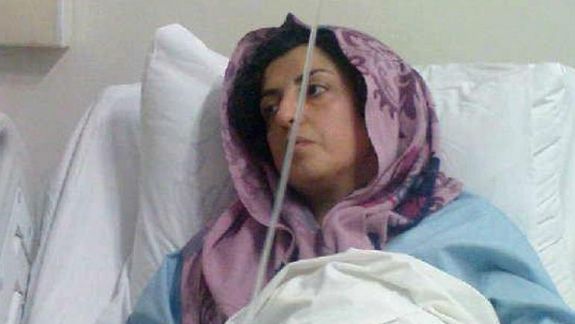
Imprisoned civil and human rights activist Narges Mohammadi has released a harrowing account of what is happening inside the women's ward of Tehran’s notorious Evin prison.
In a document published on Thursday, she recounted details about women who have been suffering from tough sentences, long periods of time spent in solitary confinements, harsh interrogations, and framing the detainees for crimes they did not commit.
Mentioning the names of 58 out of 61 prisoners, she also shed light on the conditions that these women are being kept in, including their difficulties to access medical care and treatment.
The prominent activist described solitary confinement in wards controlled by the intelligence ministry and the Revolutionary Guard as “gross violations of human rights and acts of white torture,” saying that 57 out of 58 female prisoners have experienced "terrible inhumane tortures". Most of these women, especially those who have been in solitary confinement for a long time, suffer from complications and diseases caused by confinement in solitary cells.
This imprisoned human rights activist called solitary confinement in security cells among gross violations of human rights and acts of white torture. These women spent from several months to about two years in solitary confinement, some of without any human contact.
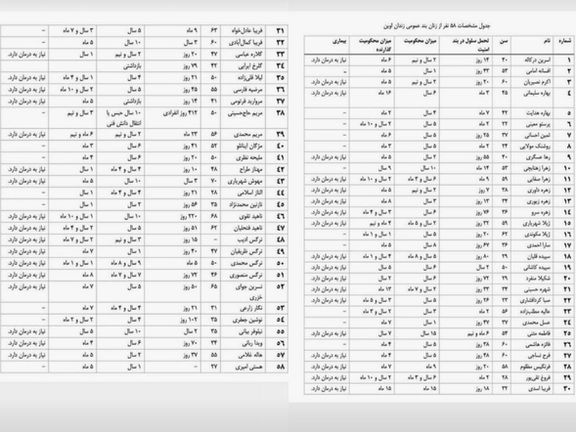
Maryam Haj-Hosseini spent 412 days in a solitary and was completely isolated and alone; Zahra Zahtabchi spent all her 14-months imprisonment in the cells of Ward 209 (that belongs to the Intelligence Ministry); and Maryam Mohammadi spent her 23 months of imprisonment in those cells in inhumane conditions, she said in her report.
She added that Niloufar Bayani spent nine months in solitary cells of Ward 209, while Sepideh Kashani, Zahra Safaei, Mahvash Shahriari, Fariba Kamalabadi each spent about eight months in those cells. According to her, dual nationals taken hostage, 68-year-old Nahid Taqavi and Fariba Adelkhah spent months in solitary confinement at Ward 209.
Mohammadi herself has been in solitary confinement for five months of her imprisonment.
She also provided a list of the sentences of these women and said most are facing very long-term incarceration, some of whom given up to 15 years behind bars.
In her list, Mohammadi also mentioned those who need medical care but are denied any treatment.
She also highlighted that dozens of political prisoners across Iran are not being kept in wards dedicated for prisoners of conscience and are kept among criminals.
Earlier in the month, the Swedish Olof Palme Foundation announced its 2023 award to three female activists, including Narges Mohammadi, for their efforts in the fight for women's freedom.
Mohammadi has been to jail several times over the past two decades. She was freed from Evin Prison in September 2020 after serving more than five years when she had no contact with her husband and children for long periods of time. She was arrested again and sentenced to eight years in jail and 70 lashes by the Revolutionary Court on trumped-up political charges again in a five-minute trial in late January 2022.
In another message from prison in June, Mohammadi called on right organizations to put pressure on the Islamic Republic for its crackdown on popular protests and said the international community should condemn the “killing of people on the streets” similar to pressure on Russia for its invasion of Ukraine.

Israeli Prime Minister Benjamin Netanyahu Thursday met US National Security Advisor Jake Sullivan and discussed Iran as well as expanding the Abraham Accords.
Hosting his first senior member of President Joe Biden's administration Netanyahu said they had discussed prospects for a diplomatic breakthrough between Israel and Saudi Arabia.
Since nuclear talks with Iran came to a deadlock last September, the US has increased closer political and military contacts with Israel.
Sullivan also heard from the Palestinians that their hopes of achieving statehood - long a Riyadh condition for normalizing relations with Israel - were being endangered by Israeli actions.
Netanyahu has pledged to forge Saudi ties that would round out normalization pacts he signed with the United Arab Emirates and Bahrain in 2020 dubbed the "Abraham Accords".
Their discussions were followed by a virtual meeting among Sullivan and his Israeli, Emirati and Bahraini counterparts. They discussed cooperation in areas such as emerging technology, regional security and commerce, according to a joint statement.
Israel and Persian Gulf allies share fears over Iran, but Netanyahu's return at the head of a religious-nationalist coalition government has stoked concern of an escalation in the decades-old conflict with the Palestinians.
Hosting Sullivan in the West Bank hub city of Ramallah, Palestinian President Mahmoud Abbas urged US intervention.
On Wednesday, Saudi Arabia's foreign minister Prince Faisal bin Farhan Al Saud urged Israel's new government to engage seriously on resolving the conflict.